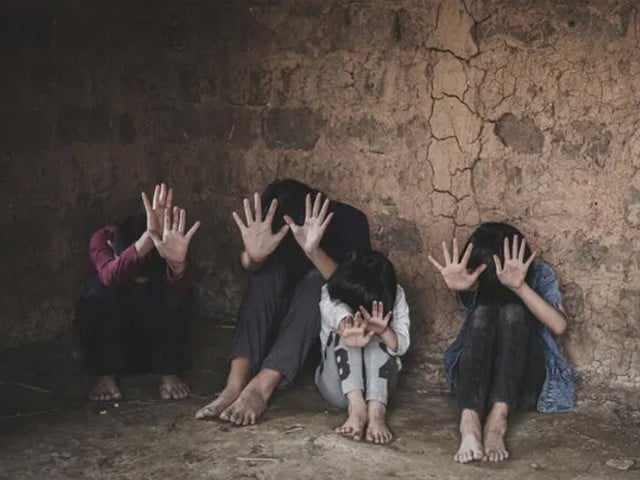More than three million people live under modern slavery, including bonded bondage, forced marriage and sexual exploitation.
Human trafficking in Pakistan is a silent crisis that smolders beneath the surface of society, entangling countless women and children in a web of exploitation and despair. This heinous crime is hidden in plain sight, exposing the dark underside of a country plagued by corruption, poor law enforcement, and systematic government failure. The rampant abuse of the most vulnerable, perpetuated by ruthless criminal networks, perpetuates a vicious cycle of suffering and social apathy, and demands urgent and decisive action. This human rights catastrophe is not only a stain on Pakistan’s moral fabric, but a serious crisis that requires immediate and comprehensive intervention to save the innocent and restore justice.
The scale of human trafficking in Pakistan is staggering, with the Global Slavery Index estimating that more than three million people are in modern slavery, which includes bonded labour, forced marriage and sexual exploitation, and often targets women and children. The trafficking of children for domestic servitude, begging and hazardous work in industries such as brick kilns and carpet weaving highlights a systematic failure to protect the most vulnerable in society.
Bonded labour in the agricultural sector is a prime example of this modern-day slavery, where landlords exploit legal loopholes and corruption to trap entire families in a cycle of debt and servitude for generations. Despite the Bonded Labour Systems (Abolition) Act, 1992, enforcement is weak and victims are often invisible to the legal system. Efforts to dismantle these exploitative networks are further complicated by entrenched feudal systems and local government complicity or indifference.
Sexual trafficking is also a widespread problem in Pakistan, where women and girls from poor families are lured with promises of employment and a better life, only to be confined to brothels and subjected to horrific abuse. The secrecy of the trade, combined with the social stigma attached to the victims, means these crimes go unreported and unaddressed. Non-governmental organizations (NGOs) such as the Edhi Foundation have made significant efforts to rescue and rehabilitate victims, but their resources are limited and the scale of the problem requires a much larger, coordinated response.
Additionally, the widespread use of the internet and social media has given traffickers new avenues to exploit vulnerable individuals, making online recruitment, nurturing and exploitation alarmingly common. This calls for a strong anti-cybercrime framework to combat these modern threats. Unfortunately, Pakistan’s cyber laws are still in their infancy, and law enforcement agencies often lack the expertise and resources to effectively combat online human trafficking.
Corruption within Pakistan’s law enforcement and judicial systems exacerbates trafficking, and bribery and collusion with traffickers undermines accountability and justice for victims. Cases are often delayed or dismissed due to insufficient evidence or the influence of powerful people, perpetuating a culture of impunity. A comprehensive overhaul of legal and judicial systems with a focus on transparency, accountability, and victim-centered justice is essential to address this issue. Education and awareness campaigns are crucial, as many victims come from marginalized communities with limited access to education and economic opportunities. Investing in education and job training can empower these communities and reduce their vulnerability to trafficking. Public awareness campaigns can also change society’s attitudes towards victims, encourage reporting, and foster a culture of vigilance against trafficking.
International cooperation is crucial to combat human trafficking as it is an international crime and requires a concerted global effort. Pakistan must work with neighboring countries and international organizations to dismantle trafficking networks, share information, and support cross-border rescue efforts. Compliance with international treaties such as the UN Protocol on Preventing, Combating and Punishment of Trafficking in Persons is essential to bring domestic laws in line with global standards. Addressing this multifaceted and deep-rooted problem requires urgent and sustained action by the Government of Pakistan to protect vulnerable populations, strengthen legal and law enforcement frameworks, and promote a culture of zero tolerance towards trafficking. Only through a coordinated and holistic approach can Pakistan eradicate this stain and ensure a safer and more just society for all its citizens.
The views expressed by the author and comments made by readers do not necessarily reflect the views and policies of The Express Tribune.

